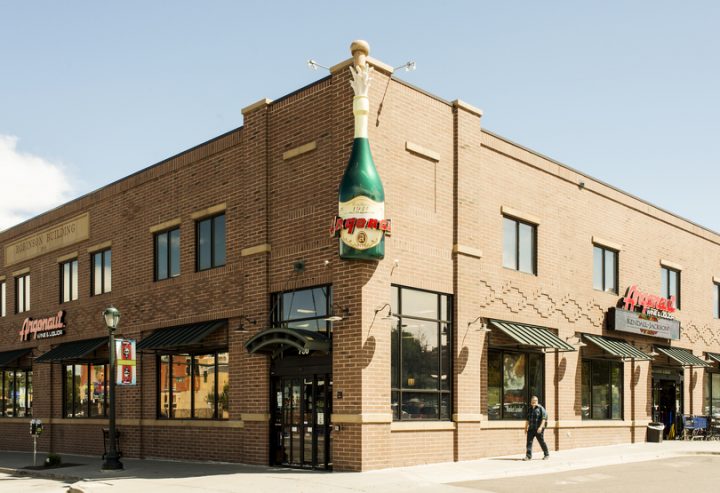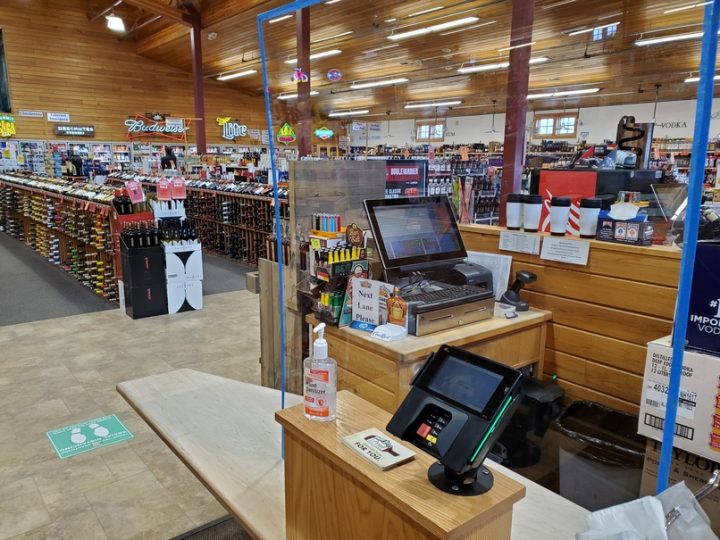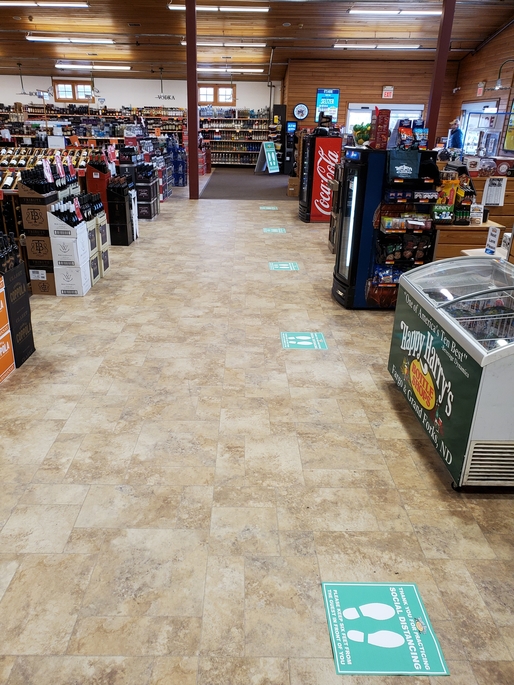
Beverage alcohol retailers continue to find new ways to meet consumers’ needs during this time of mass social isolation and self-quarantining. Plexiglas shields at checkout counters, strict social distancing policies, and significantly increased delivery and curbside pick up services have become key factors to keeping businesses open during the Covid-19 pandemic. “Our online and delivery business has exploded over the past two weeks,” says Josh Robinson, co-owner of Argonaut Wine & Liquor in Denver. “People want to spend less time inside retail outlets and prefer to have their purchase prepared for them ahead of time.”
Argonaut recently hired several employees to help with increased demand. “Most of my staff’s time and effort has been transitioned into pulling and processing orders due to the increase in demand for delivery and curbside pickup,” Robinson adds. “People are drinking a similar amount as usual. The up-tick in sales for us is coming from the fact that people have to do all their drinking at home, as opposed to in on-premise channels.”
Austin, Texas-based Twin Liquors expanded the number of stores offering delivery and in-store pickup from 12 to more than 40 stores over the last three weeks. Twin Liquors has also implemented extra safety precautions and preparedness, including installing Plexiglas guards, for protection between cashiers and customers, in its stores across Texas.
In the Midwest, Fort Wayne, Indiana-based Cap n’ Cork is experiencing solid 25% sales growth across its 15 stores. “Sales were strong as the government indicated some industries would close and then when they closed restaurants and allowed curbside only and drive-thru, our business started to really get crazy,” says Cap n’ Cork co-owner Joe Doust. “The same products are being purchased, but everyone is buying more.”
Beginning on April 8, Indiana Gov. Eric Holcomb restricted beverage alcohol package stores exclusively to curbside pickup. But the restriction hasn’t dampened sales. “Phone orders have been very strong, which is helpful in giving us time to process orders,” Doust says, noting that Cap n’ Cork has increased staffing to take care of the process. “Customers can also pull up and we’re outside to manually take and fulfill their order.”

Bang For The Buck
At Happy Harry’s Bottle Shops in North Dakota, signs were put on the floor measured out six feet away from the checkout so people know where to line up, and large panes of Plexiglas were installed at checkout counters to protect employees. “Things change by the hour and by the day as we get through this we’re constantly evaluating if we need to add other measures to protect our staff and customers,” says Happy Harry’s CEO Dustin Mitzel.
Since the pandemic began taking its toll in mid-March, sales have been up dramatically at Happy Harry’s three stores in Fargo and two stores in Grand Forks. Sales of 3-liter boxed wines such as Bota Box ($15) and 24-packs of 12-ounce cans or bottles of Bud Light ($19), Coors Light ($19), and Busch Light ($18) have led the surge. “People are buying more products at one time and going for the most bang for the buck,” Mitzel says.
Consumer shopping trends have also changed at Happy Harry’s, with more shopping on weekdays and less shopping on the weekends. “Now there’s really nothing going on during the weekends with people at home,” Mitzel says. “We take hits on Friday and Saturday but then Monday through Thursday sales are stronger.”
In Denver, Argonaut customers are also buying in quantity. “People are making larger and less frequent purchases as opposed to shopping daily or a few times a week,” Robinson observes. “This leads to people buying a case of their favorite beer, wine, or spirit as opposed to one or two bottles at a time.”

A Little Hope
Camden, New Jersey-based Mancine’s Liquor saw a 50% spike in sales when Pennsylvania shuttered its 585 state-run wine and spirits stores in mid-March. About a block away from the Delaware River border between Pennsylvania and New Jersey, Mancine’s gets it share of customers from neighboring Philadelphia. Measures that Mancine’s has taken in the face of the pandemic include requiring masks for all customers and employees, strictly enforcing six-feet social distancing, and only allowing two customers in the 2,000-square-foot neighborhood store at a time.
Mancine’s manager Jack Ayoub says that even with the new restrictions sales are up in the single digit range. “Sales are up across the board, but it’s mostly the cheaper stuff and the larger selling sizes of spirits,” he notes.
Beverage alcohol retailers nationwide continue to adjust to the rapidly changing situation to provide a service essential to many. “With all of the uncertainty and chaos in the world right now, having a glass of wine or Bourbon with dinner, or after dinner, allows people to take a deep breath and say, ‘All right, this is my little piece of normalcy,’” Happy Harry’s Mitzel says. “It gives people a little hope.”